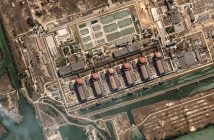The video above delves deeper into the subject of battery storage
- A new international partnership has been established to help expand the deployment of energy storage and bring new technologies to developing countries’ power systems.
- The Energy Storage Partnership (ESP) comprises the World Bank Group and 29 organisations working together to help develop energy storage solutions tailored to the needs of developing countries.
- Energy transitions are underway in many countries with a significant increase in the use of wind and solar power.
To integrate these variable renewable resources into grids at the scale necessary to mitigate climate change, energy storage will be key. The increased use of wind and solar power with storage can help decarbonize power systems, expand energy access, improve grid reliability, and increase energy systems’ resilience.
The requirements of developing countries’ grids are not yet fully considered in the current energy storage market – even though these countries may have the largest potential for battery deployment. The current battery market is driven by the electric vehicle industry and most mainstream technologies cannot provide long duration storage or withstand harsh climatic conditions and low operation and maintenance capacity.
“The fast growth we’re seeing in the electric vehicle market is exactly what we need for energy storage in power systems around the world,” said Riccardo Puliti, senior director for energy and extractives at the World Bank. Puliti added: “We want to see batteries connected to the grid, serving mini-grids, and enabling much more use of renewable power from the sun and wind.
“This is why we are convening the Energy Storage Partnership and we are honored to work with the partners who have joined this initiative. We’re looking forward to having more partners join the effort.”
To enable the rapid uptake of variable renewable energy in developing countries, the World Bank Group is convening an Energy Storage Partnership (ESP) that will foster international cooperation on:
- Technology research development & demonstration, applications
- System integration and planning tools
- Policies, regulations and procurement
- Enabling systems for management and sustainability
By connecting stakeholders and sharing international experiences in deploying energy storage solutions, the ESP will help bring new technological and regulatory solutions to developing countries, as well as help develop new business models that leverage the full range of services that storage can provide.
The ESP will take a holistic, technology-neutral approach by including all forms of energy storage, including batteries.
The ESP will help expand the global market for energy storage, leading to technology improvements and accelerating cost reductions over time.
Watch this Webinar recording on Battery storage: Africa’s energy metals market and supply chain
Frank Des Rosiers, the chairperson of the Mission Innovation Steering Committee, commented: “Mission Innovation was born out of a global commitment to accelerate clean energy innovation, to make clean energy widely affordable and accessible. We recognise that this cannot be done by Mission Innovation alone and that we need strong partnerships with organizations like the World Bank to be successful.”
“This Energy Storage Partnership with the World Bank aligns with a key innovation opportunity that Mission Innovation members have identified through our Smart Grid Innovation Challenge.”
Christian Zinglersen, Head of Secretariat, Clean Energy Ministerial, noted that power systems are undergoing rapid change.
“Policy makers and regulators need to actively identify options to increase the flexibility of power systems in their jurisdictions; this not least to accommodate the integration of increasingly larger shares of intermittent renewable generation and distributed energy resources,” Zinglersen urged.
Author: Babalwa Bungane
This article was originally published on ESI Africa and is republished with permission with minor editorial changes.










